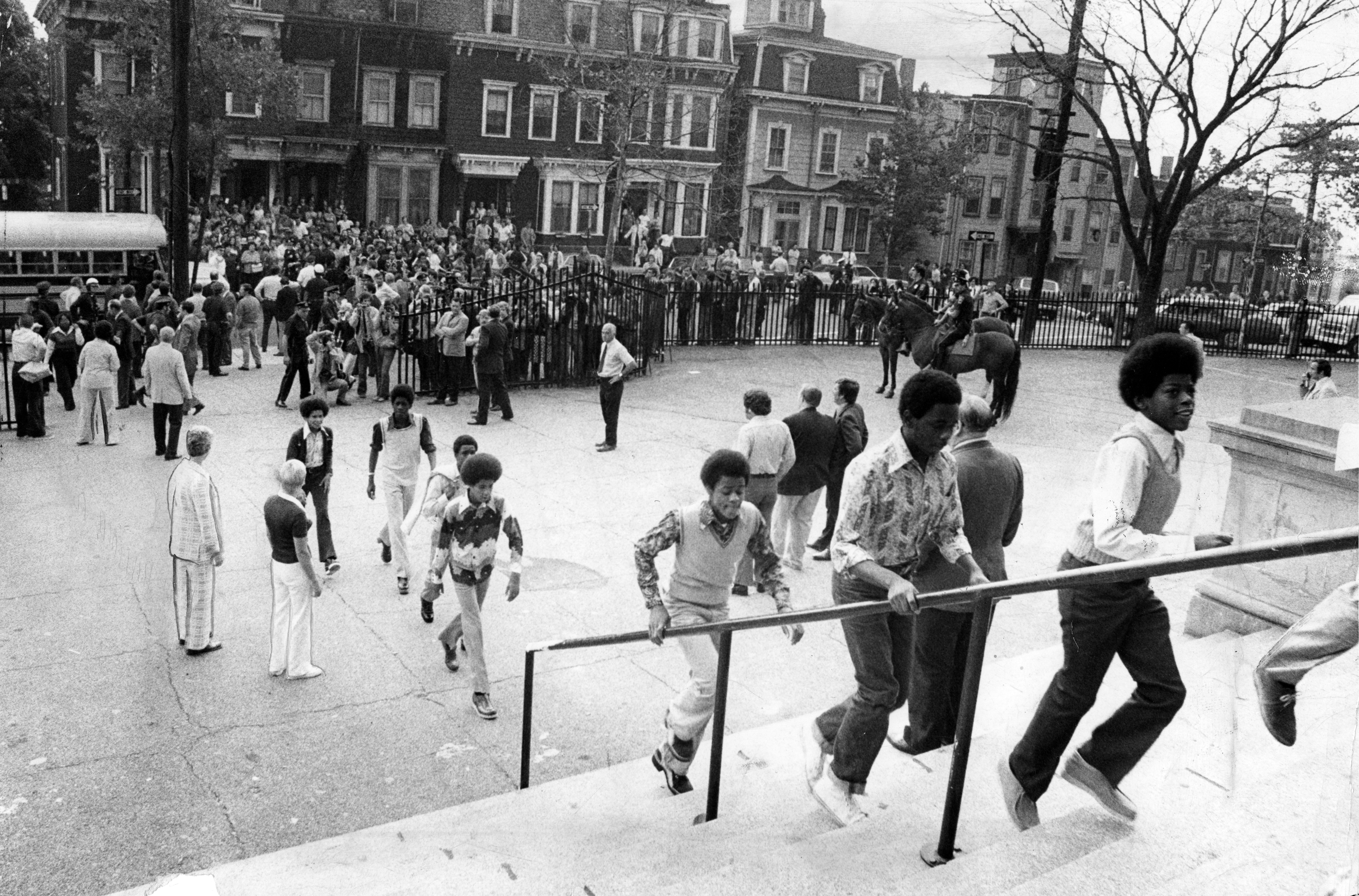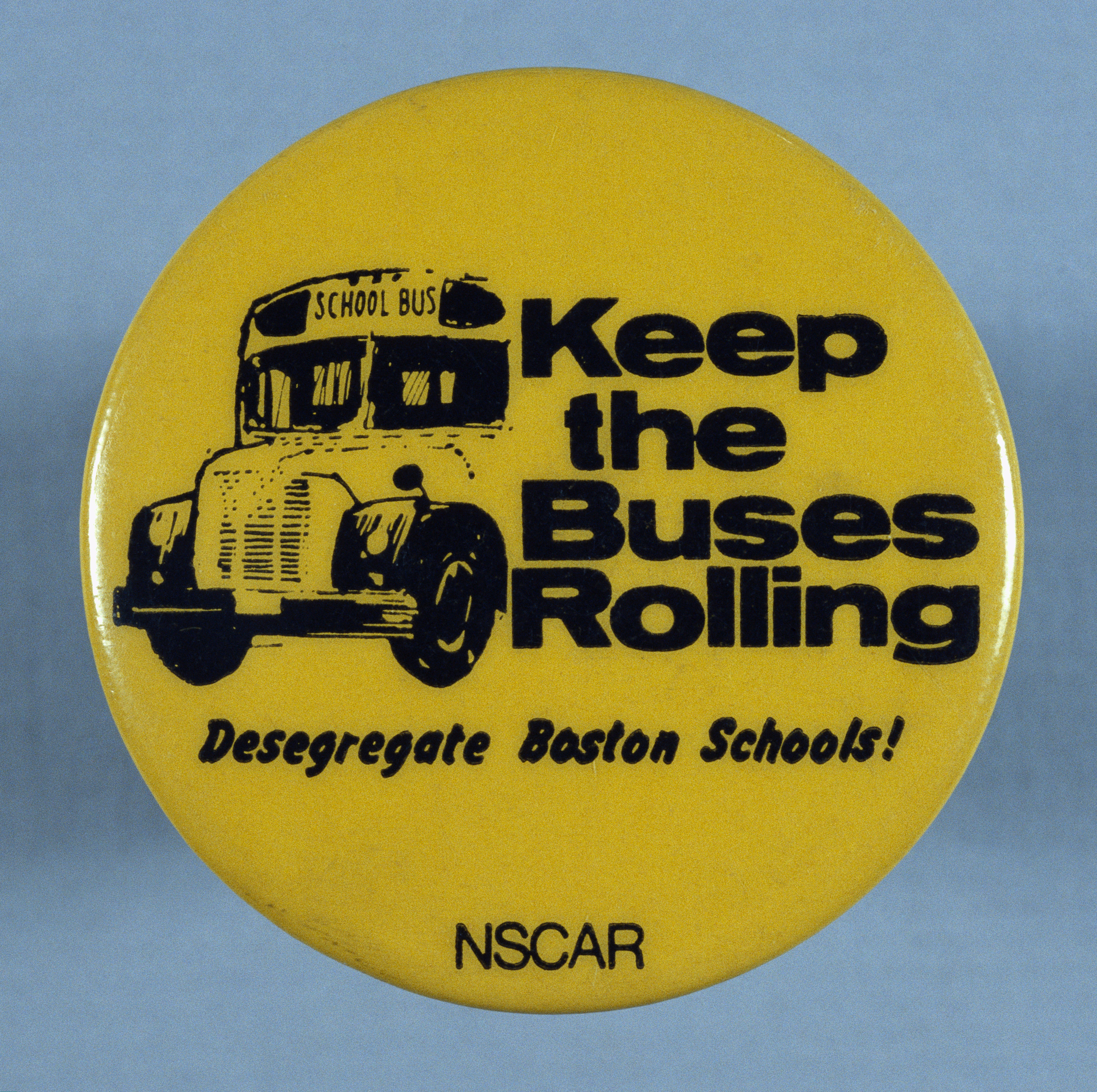
Students enter a South Boston school on the first day of court-ordered busing, imposed to desegregate schools, in 1974
Lukas identified three families and reported how court-ordered busing to integrate the Boston public schools affected them. Step by step, he reported the decisions of city officials and judges that led to the busing order and then the impact, step by step, on an African-American family, an Irish-American family, and a liberal Protestant family.

A button in support of desegregating Boston’s schools
The dramatic story told much about who we are as a people, and how we see “others.” On the day the busing ordered by U.S. District Judge W. Arthur Garrity was to begin in 1974, thousands of protestors showed up on Boston Common, pelting U.S. Senator Edward Kennedy with tomatoes and eggs when he sought to calm tensions.
Lukas was part of the wave of journalists that, as Tom Wolfe documented in “The New Journalism,” helped push reporters away from the stifled formal reliance on press conferences and official pronouncements, from the reporter as stenographer to something much more.


